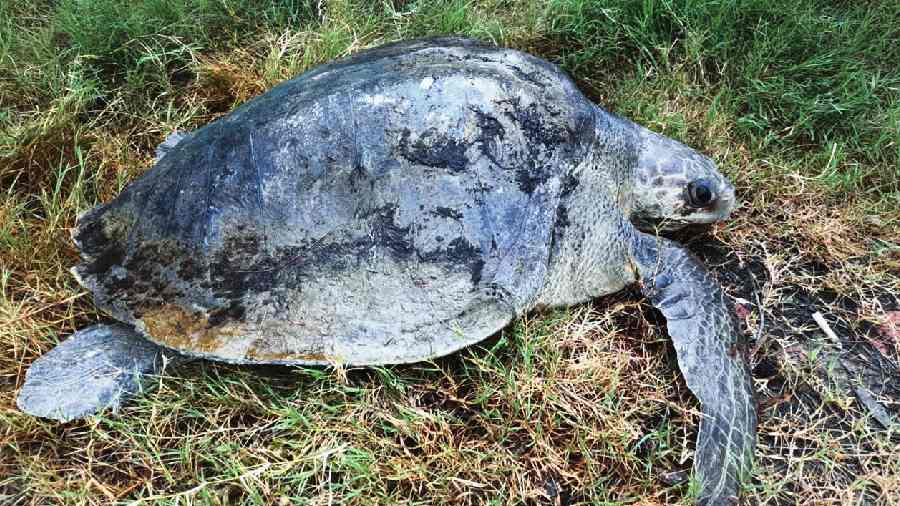A team of forest guards checking on the nylon net bordering a forest in the Sunderbans on Tuesday morning found a turtle.
The reptile, spotted in the Bidya river opposite Jharkhali in South 24-Parganas, around 100km southeast of Kolkata, looked injured and was struggling to swim, prompting the guards to bring it to the tiger rescue centre at Jharkhali.
There, forest officials and vets identified the animal as an Olive Ridley turtle, an endangered sea creature. It has an injury in one of its flippers, said a forest official.
“Around 8.15am, when staff of Matla Range were doing regular nylon net checking duty at Herobhanga 4 forest compartment, they found this Olive Ridley turtle floating with slight injury in one of its flippers. The injury seems to be minor and we are hopeful that we could release it back to its habitat,” said Milan Mondal, the DFO of South 24-Parganas.
Mondal said Olive Ridley turtles come to the islands of the Sunderbans to lay eggs.
According to the fisheries section of the US-based National Oceanic and Atmospheric Administration, the Olive Ridley turtle gets its name from the olive green colour of its heart-shaped shell.
The turtles have five to nine pairs of scutes. Each of the four flippers of an Olive Ridley has one or two claws.
The Odisha coast is the world’s largest mass nesting site for the Olive Ridley turtles. “Olive Ridleys often come to the sea-facing islands of the Sunderbans for nesting. It starts from October-November and extends beyond March. But now is the time for hatching of the eggs,” said Shailendra Singh, director, Turtle Survival Alliance, India programme.
He said the turtle seemed to be an adult female.
“It is possible that the turtle found by the foresters lost its way because of the difference in the salinity levels in the sea water and some channels that lead to the islands,” said Singh, who is in the Sunderbans Tiger Reserve for a training programme on another type of turtles — the northern river terrapin, (Batagur Baska), found in the Sunderbans.
“The injury does not seem serious. But the cause cannot be ascertained with certainty,” he said.
Gharial
A sub-adult female gharial, around seven feet long, was rescued from a narrow khal (canal) in Rajnagar in Namkhana, by the forest guards of Bakkhali Range on Tuesday.
“The gharial is safe. It will be taken to Bhagabatpur Crocodile sanctuary for further observation,” said a forest officer.
